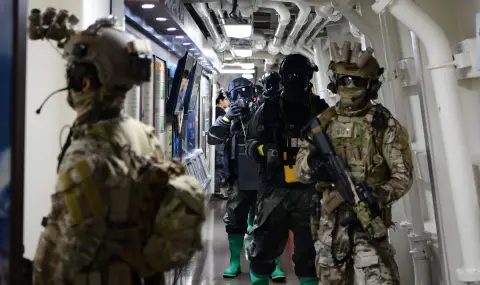Another attempt will be made to arrest South Korean President Yun Suk-yeol, who is accused of sedition, after a senior investigator vowed to do everything necessary to break through the blockade of the presidential guard and detain the impeached leader, Reuters reported, BTA reported.
Groups of protesters, some supporting and others opposing Yun, continued to demonstrate in the streets around the presidential palace today despite sub-zero temperatures. Meanwhile, last night, the court issued another arrest warrant for Yun.
This week, the Presidential Security Service (PSS) fortified the presidential palace with barbed wire and barricades, using buses to block access to the hilltop building where Yun is believed to be staying, after he refused to appear for questioning. Yun is being investigated for sedition over his Dec. 3 declaration of martial law, which shocked South Korea and led to the first arrest warrant for a sitting president.
He is also involved in another trial at the Constitutional Court over the impeachment vote he received from parliament on Dec. 14 over the declaration of martial law. Oh Dong-won, head of the High-Level Corruption Investigation Service, which is leading the investigation into Yun, apologized last night for the failed arrest attempt last Friday.
Oh called off the arrest attempt after a human chain of hundreds of members of the ruling party and military guards prevented him from entering the presidential palace. "We will do everything we can to achieve our goal, and this time we will prepare thoroughly and with great determination so that the second attempt to execute the warrant will be the last," Oh told a parliamentary committee.
It was not immediately clear how long the new arrest warrant would take to execute, Reuters noted. Oh did not object when lawmakers called for tough action to overcome the presidential guard and military units at the presidential palace, but declined to confirm what options were being considered.
Various scenarios reported in local media include the mobilisation of police special tactical units and heavy equipment to breach the barricades, followed by the deployment of over 2,000 police to remove the presidential guard, which could take up to three days if necessary to wear down the presidential guard agents. In the previous arrest attempt, the Corruption Investigation Service and police were outnumbered by over 200 PSC officers, some of whom carried firearms, as well as soldiers deployed to protect the president.
